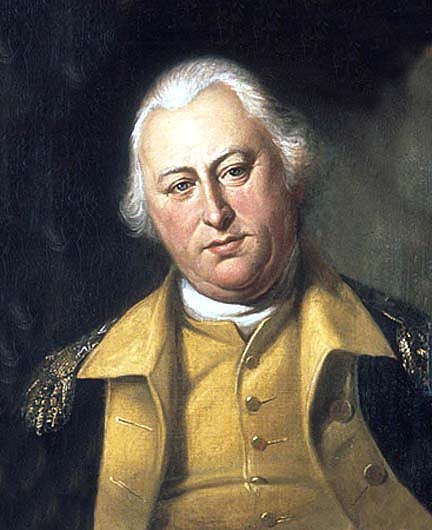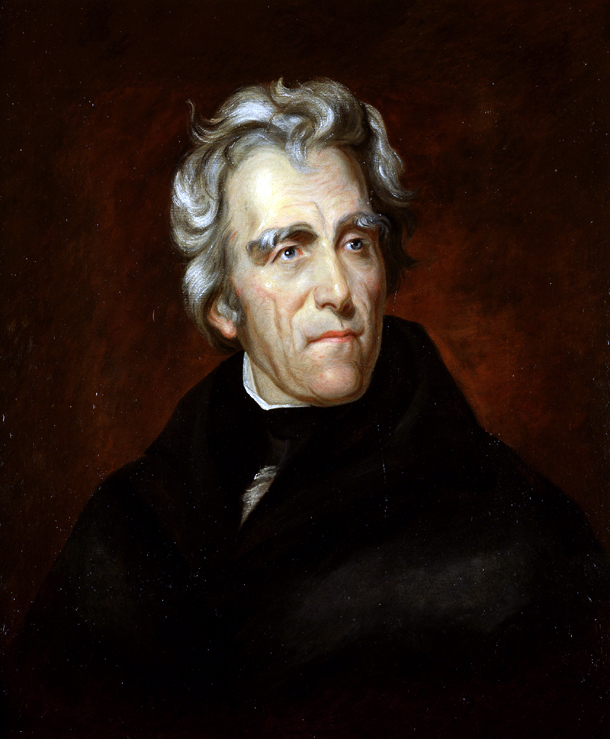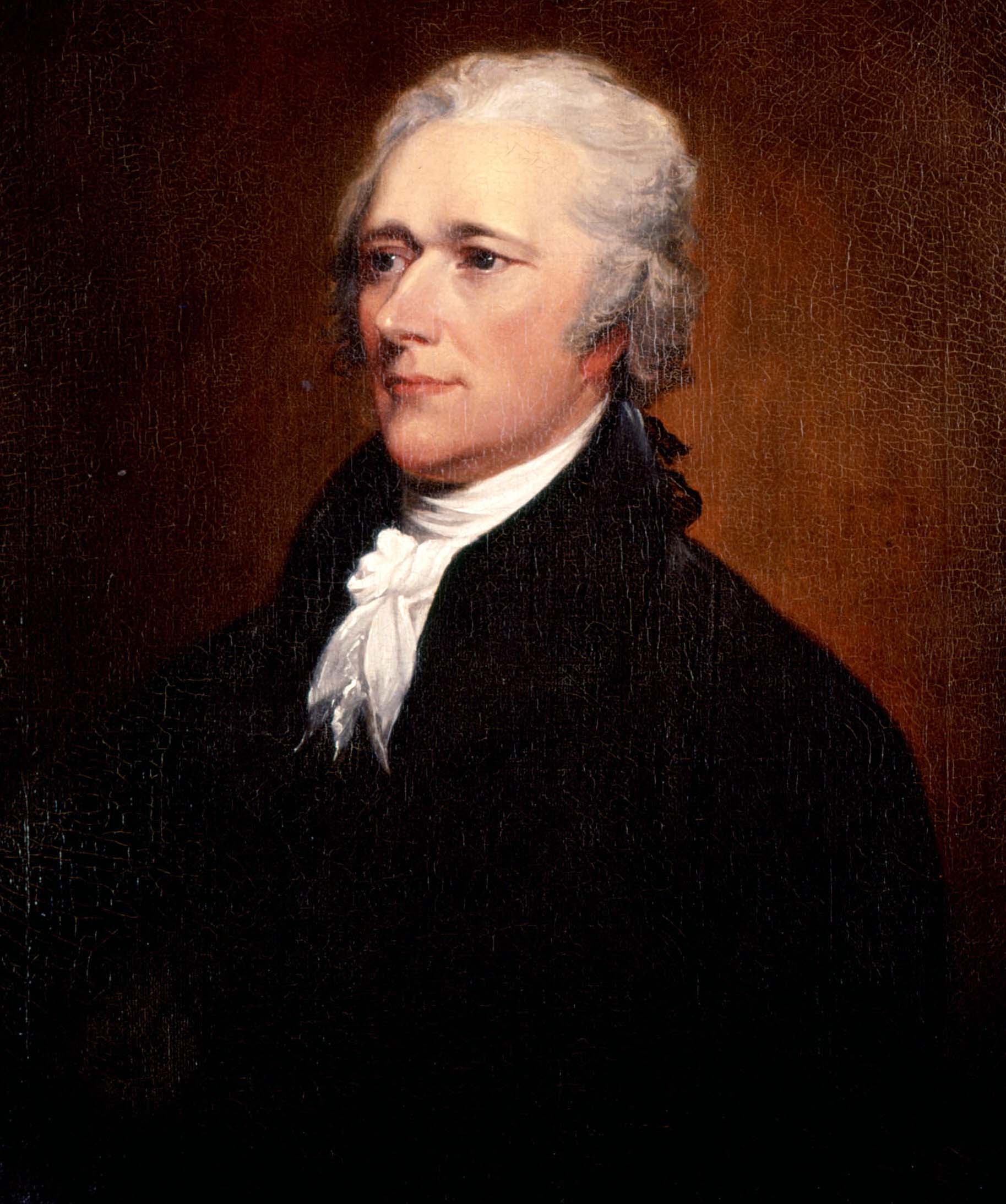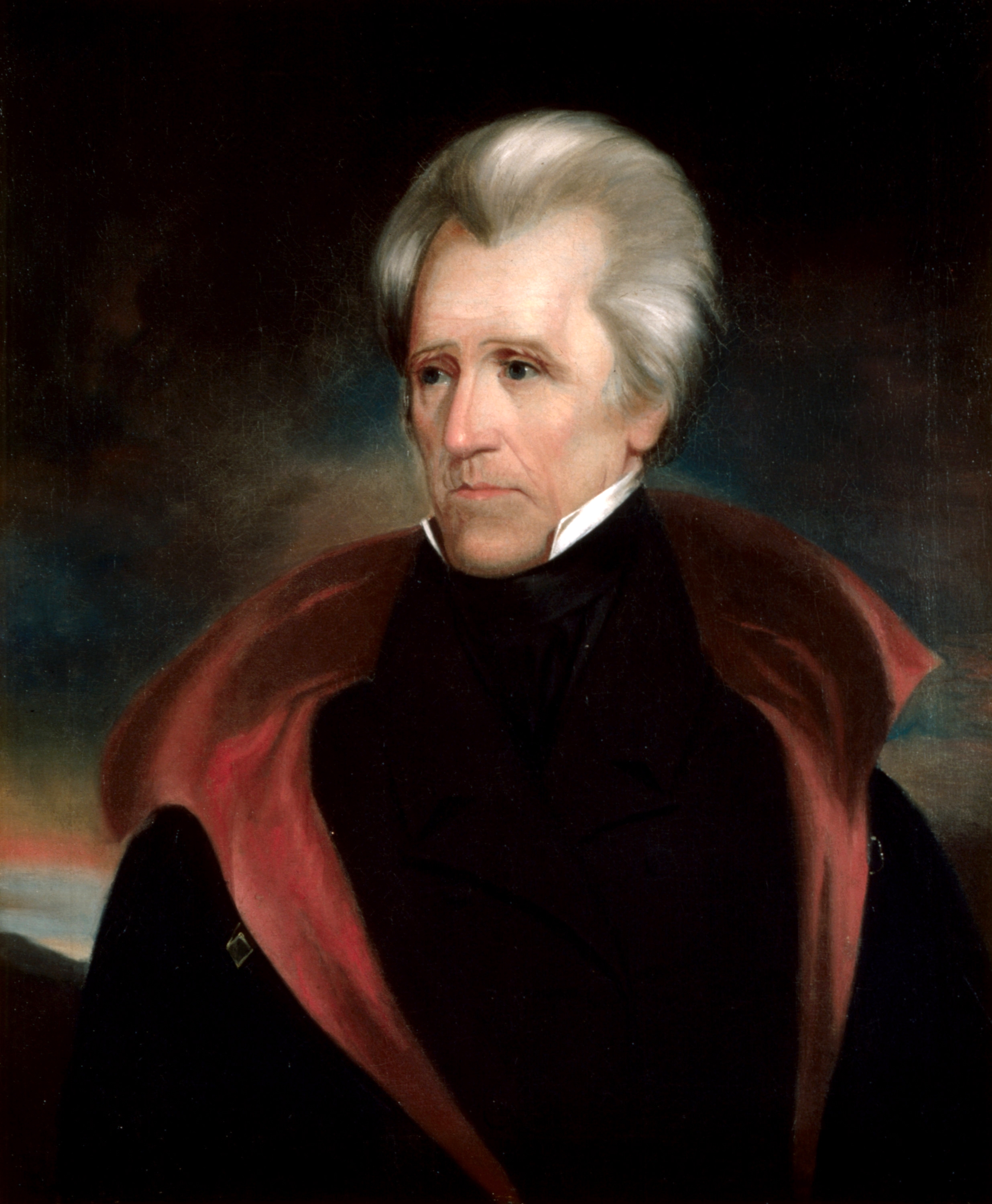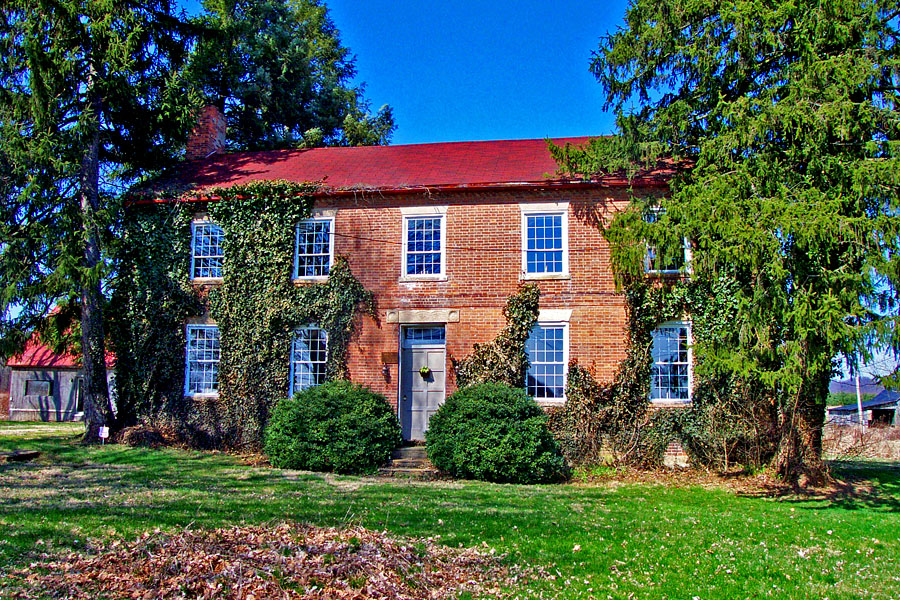|
1832 Democratic National Convention
The 1832 Democratic National Convention was held from May 21 to May 23, 1832, in Baltimore, Maryland. In the first presidential nominating convention ever held by the Democratic Party, incumbent President Andrew Jackson was nominated for a second term, while former Secretary of State Martin Van Buren was nominated for vice president. The Anti-Masonic Party and the National Republican Party had held the first presidential nominating conventions in 1831, and Jackson's " Kitchen Cabinet" helped organize a Democratic convention in 1832. As the party leaders assumed that Jackson would be nominated for president, the primary purpose of the convention was to find a new running mate: Vice President John C. Calhoun had fallen out with Jackson following the Petticoat affair and the Nullification Crisis, and subsequently resigned the office in order to take a Senate seat. The convention, which was presided over by Governor Robert Lucas, hosted delegates from every state except Missou ... [...More Info...] [...Related Items...] OR: [Wikipedia] [Google] [Baidu] |
Baltimore, Maryland
Baltimore ( , locally: or ) is the List of municipalities in Maryland, most populous city in the U.S. state of Maryland, fourth most populous city in the Mid-Atlantic (United States), Mid-Atlantic, and List of United States cities by population, the 30th most populous city in the United States with a population of 585,708 in 2020. Baltimore was designated an Independent city (United States), independent city by the Constitution of Maryland in 1851, and today is the most populous independent city in the United States. As of 2021, the population of the Baltimore metropolitan area was estimated to be 2,838,327, making it the List of metropolitan areas of the United States, 20th largest metropolitan area in the country. Baltimore is located about north northeast of Washington, D.C., making it a principal city in the Washington–Baltimore combined statistical area, Washington–Baltimore combined statistical area (CSA), the third-largest combined statistical area, CSA in the nat ... [...More Info...] [...Related Items...] OR: [Wikipedia] [Google] [Baidu] |
Kitchen Cabinet
Kitchen cabinets are the built-in furniture installed in many kitchens for storage of food, cooking equipment, and often silverware and dishes for table service. Appliances such as refrigerators, dishwashers, and ovens are often integrated into kitchen cabinetry. There are many options for cabinets available at present. History As commonly used today, the term ''kitchen cabinet'' denotes a built-in kitchen installation of either a floor or a wall cabinet. Typically, multiple floor cabinets are covered by a single counter and floors and walls are not accessible behind and under the cabinets. Kitchen cabinets ''per se'' were invented in the 20th century. A precursor, not built-in, was the Hoosier cabinet of the 1910s, a single piece of furniture incorporating storage and work surfaces, of which over 2 million were sold by 1920. * Pre-WW-I cabinet design. Typical kitchens before World War I used freestanding work tables and a pantry for dry storage. Cupboards were sometimes ... [...More Info...] [...Related Items...] OR: [Wikipedia] [Google] [Baidu] |
United States Secretary Of War
The secretary of war was a member of the U.S. president's Cabinet, beginning with George Washington's administration. A similar position, called either "Secretary at War" or "Secretary of War", had been appointed to serve the Congress of the Confederation under the Articles of Confederation between 1781 and 1789. Benjamin Lincoln and later Henry Knox held the position. When Washington was inaugurated as the first President under the Constitution, he appointed Knox to continue serving as Secretary of War. The secretary of war was the head of the War Department. At first, he was responsible for all military affairs, including naval affairs. In 1798, the secretary of the Navy was created by statute, and the scope of responsibility for this office was reduced to the affairs of the United States Army. From 1886 onward, the secretary of war was in the line of succession to the presidency, after the vice president of the United States, the Speaker of the House of Representatives, t ... [...More Info...] [...Related Items...] OR: [Wikipedia] [Google] [Baidu] |
1828 United States Presidential Election
The 1828 United States presidential election was the 11th quadrennial presidential election. It was held from Friday, October 31 to Tuesday, December 2, 1828. It featured a repetition of the 1824 election, as President John Quincy Adams of the National Republican Party faced Andrew Jackson of the Democratic Party. Both parties were new organizations, and this was the first presidential election their nominees contested. This election saw the second rematch in presidential history, something that would not occur again until 1840. With the collapse of the Federalist Party, four members of the Democratic-Republican Party, including Jackson and Adams, had sought the presidency in the 1824 election. Jackson had won a plurality (but not majority) of both the electoral vote and popular vote in the 1824 election, but had lost the contingent election that was held in the House of Representatives. In the aftermath of the election, Jackson's supporters accused Adams and Henry Clay o ... [...More Info...] [...Related Items...] OR: [Wikipedia] [Google] [Baidu] |
1824 United States Presidential Election
The 1824 United States presidential election was the tenth quadrennial presidential election. It was held from Tuesday, October 26 to Thursday, December 2, 1824. Andrew Jackson, John Quincy Adams, Henry Clay and William Crawford were the primary contenders for the presidency. The result of the election was inconclusive, as no candidate won a majority of the electoral vote. In the election for vice president, John C. Calhoun was elected with a comfortable majority of the vote. Because none of the candidates for president garnered an electoral vote majority, the U.S. House of Representatives, under the provisions of the Twelfth Amendment, held a contingent election. On February 9, 1825, John Quincy Adams was elected as president without getting the majority of the electoral vote or the popular vote, being the only president to do so. The Democratic-Republican Party had won six consecutive presidential elections and by 1824 was the only national political party. However, as ... [...More Info...] [...Related Items...] OR: [Wikipedia] [Google] [Baidu] |
William H
William is a masculine given name of Norman French origin.Hanks, Hardcastle and Hodges, ''Oxford Dictionary of First Names'', Oxford University Press, 2nd edition, , p. 276. It became very popular in the English language after the Norman conquest of England in 1066,All Things William"Meaning & Origin of the Name"/ref> and remained so throughout the Middle Ages and into the modern era. It is sometimes abbreviated "Wm." Shortened familiar versions in English include Will, Wills, Willy, Willie, Liam, Bill, and Billy. A common Irish form is Liam. Scottish diminutives include Wull, Willie or Wullie (as in Oor Wullie or the play ''Douglas''). Female forms are Willa, Willemina, Wilma and Wilhelmina. Etymology William is related to the German given name ''Wilhelm''. Both ultimately descend from Proto-Germanic ''*Wiljahelmaz'', with a direct cognate also in the Old Norse name ''Vilhjalmr'' and a West Germanic borrowing into Medieval Latin ''Willelmus''. The Proto-Germa ... [...More Info...] [...Related Items...] OR: [Wikipedia] [Google] [Baidu] |
United States Secretary Of The Treasury
The United States secretary of the treasury is the head of the United States Department of the Treasury, and is the chief financial officer of the federal government of the United States. The secretary of the treasury serves as the principal advisor to the president of the United States on all matters pertaining to economic and fiscal policy. The secretary is a statutory member of the Cabinet of the United States, and is fifth in the presidential line of succession. Under the Appointments Clause of the United States Constitution, the officeholder is nominated by the president of the United States, and, following a confirmation hearing before the Senate Committee on Finance, is confirmed by the United States Senate. The secretary of state, the secretary of the treasury, the secretary of defense, and the attorney general are generally regarded as the four most important Cabinet officials, due to the size and importance of their respective departments. The current secre ... [...More Info...] [...Related Items...] OR: [Wikipedia] [Google] [Baidu] |
Congressional Nominating Caucus
The congressional nominating caucus is the name for informal meetings in which American congressmen would agree on whom to nominate for the Presidency and Vice Presidency from their political party. History The system was introduced after George Washington had announced his retirement upon the end of his second term, when the Democratic-Republican Party, and Federalist Party began contesting elections on a partisan basis. Both parties may have held informal caucuses in 1796 to try to decide on their candidates. After the disorganized electoral voting of 1796, both parties held formal caucuses in 1800 that selected their respective presidential candidates (prior to the ratification of the 12th Amendment in 1804 each party ran two presidential candidates). The Federalists secretly held their caucus in early May, but later made their ticket of President John Adams and Charles Cotesworth Pinckney public. The Democratic-Republicans also secretly met in May, and agreed to equally supp ... [...More Info...] [...Related Items...] OR: [Wikipedia] [Google] [Baidu] |
Thomas Ritchie (journalist)
Thomas Ritchie (November 5, 1778 – July 3, 1854) of Virginia was a leading American newspaper journalist, editor and publisher. Biography He read law and medicine, but, instead of practicing either, set up a bookstore in Richmond, Virginia in 1803. He bought out the Republican newspaper the ''Richmond Enquirer'' in 1804, and made it a financial and political success, as editor and publisher for 41 years. The paper appeared three times a week. Thomas Jefferson said of the ''Enquirer'': "I read but a single newspaper, Ritchie's Enquirer, the best that is published or ever has been published in America." Ritchie wrote the stirring partisan editorials, clipped the news from Washington and New York papers, and did most of the local reporting himself. For 25 years he was state printer, a method by which his political friends subsidized their most articulate voice. Ritchie was a leader of the "Richmond Junto" that controlled the Republican state committee, originally with Ri ... [...More Info...] [...Related Items...] OR: [Wikipedia] [Google] [Baidu] |
1832 United States Presidential Election
The 1832 United States presidential election was the 12th quadrennial presidential election, held from November 2 to December 5, 1832. Incumbent president Andrew Jackson, candidate of the Democratic Party, defeated Henry Clay, candidate of the National Republican Party. The election saw the first use of the presidential nominating conventions, and the Democrats, National Republicans, and the Anti-Masonic Party all used conventions to select their candidates. Jackson won re-nomination with no opposition, and the 1832 Democratic National Convention replaced Vice President John C. Calhoun with Martin Van Buren. The National Republican Convention nominated a ticket led by Clay, a Kentuckian who had served as Secretary of State under President John Quincy Adams. The Anti-Masonic Party, one of the first major U.S. third parties, nominated former Attorney General William Wirt. Jackson faced heavy criticism for his actions in the Bank War, but remained popular among the general ... [...More Info...] [...Related Items...] OR: [Wikipedia] [Google] [Baidu] |
Missouri
Missouri is a U.S. state, state in the Midwestern United States, Midwestern region of the United States. Ranking List of U.S. states and territories by area, 21st in land area, it is bordered by eight states (tied for the most with Tennessee): Iowa to the north, Illinois, Kentucky and Tennessee to the east, Arkansas to the south and Oklahoma, Kansas and Nebraska to the west. In the south are the Ozarks, a forested highland, providing timber, minerals, and recreation. The Missouri River, after which the state is named, flows through the center into the Mississippi River, which makes up the eastern border. With more than six million residents, it is the List of U.S. states and territories by population, 19th-most populous state of the country. The largest urban areas are St. Louis, Kansas City, Missouri, Kansas City, Springfield, Missouri, Springfield and Columbia, Missouri, Columbia; the Capital city, capital is Jefferson City, Missouri, Jefferson City. Humans have inhabited w ... [...More Info...] [...Related Items...] OR: [Wikipedia] [Google] [Baidu] |
Robert Lucas (governor)
Robert Lucas (April 1, 1781February 7, 1853) was the 12th governor of Ohio, serving from 1832 to 1836. He also served as the first governor of the Iowa Territory from 1838 to 1841. Early life Lucas was born in 1781 in what was then Mecklenburg, Virginia (his birthplace's location in modern times is known as Shepherdstown, West Virginia). He was the son of William Lucas and Susannah Barnes. Lucas came from a Quaker family whose roots stretched back to 1679 in Pennsylvania, though the family had recently moved to Virginia. Lucas' father, an American Revolutionary War veteran, owned slaves and large amounts of land. According to family legend, Robert's uncle, Joseph Barnes, built a steam-powered boat long before Fulton's invention. Robert received some early schooling in mathematics and surveying, skills that would prove invaluable to his future work.Parish 1907 Around the age of nineteen, Lucas moved to the Scioto Valley of the Northwest Territory, now Ohio. He was preceded b ... [...More Info...] [...Related Items...] OR: [Wikipedia] [Google] [Baidu] |


